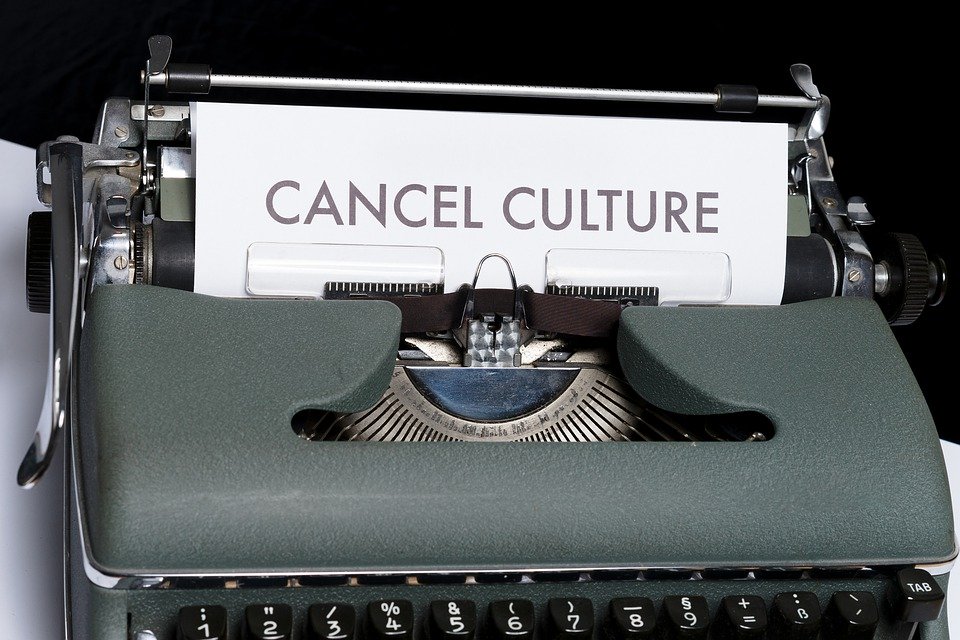On July 7th 2020, Harper’s Magazine published ‘A Letter on Justice and Open Debate.’ Signed by 150 members of the intellectual and cultural elite, including JK Rowling, Margaret Atwood, Gloria Steinham and Salman Rushdie, the statement against “a vogue for public shaming and ostracism” was met with immediate retaliation. Though never explicitly naming the phenomenon, the letter reignited debate surrounding ‘cancel culture’.
If nothing else, these debates have confirmed that ‘cancel culture’ is a minefield. The term is nebulant and increasingly subject to a whole spectrum of interpretations. Whilst it’s critics regard it as an antagonist to free speech, there is a considerable number who question whether it exists altogether.
The Harper’s letter warns against an ‘intolerance for opposing views’, championing ‘exposure, argument and persuasion’ as the best means of tackling unfavourable views. On the surface, it seems a reasonable request. However, take one glance at the signatories and you will realise few have suffered anything except an unwelcome challenge to their progressive self-image. Perhaps most notable is the involvement of Rowling who, through the signing the letter, characterised herself as a victim when her recent comments against trans women have victimised an entire community. Ultimately, discourse surrounding why many of these individuals should be cancelled has been far more prominent that any actual form of cancellation.
Social media offers a realm for under-represented voices to bring high-profile figures to account. Is this letter purely evidence that these figures’ egos cannot stand up to scrutiny? As Alexandra Ocasia Cortez put it, “people who are actually ‘cancelled’ don’t get their thoughts published and amplified in major outlets.” The hypocrisy in asking for allowance of opposing views yet signing a letter in self defence when those views are met with opposition is painfully clear.
In October of 2019 Barack Obama relayed similar sentiments in a discussion about youth activism. The former president criticised an expectation amongst ‘woke’ activists of constant and uncompromised moral purity, arguing that “the world is messy”, and that call-out culture (which seems to have become interchangeable with cancel culture) fails to take into account it’s nuances and ambiguities.
Indeed, there is danger in appropriating this call-out culture for the purposes of virtue signalling in the way that Obama described. There is a toxic potential in the desire to mercilessly shame based on one past remark. The nature of the internet unfortunately means there will always be those who seek to ‘cancel’ without any effort to empathise or opportunity for redemption. But challenging them and seeking consequences when one remark becomes a conscious repeated offence is absolutely necessary.
I’m not sure I agree that cancel culture has never existed. However, the term has broadened with such momentum that in many ways it has become empty. In the way that it has come to be applied, it feels dismissive and oversimplified. Whilst there are those who seek to scrutinise in a matter of seconds, it does not do justice to the labour that goes behind properly holding figures or institutions to account, whether that be through online mobilisation or taking to the streets to tear down statues.
Using ‘cancel culture’ as a blanket term to at once describe defamation of high profile sexual predators, unfounded shaming, or attempts to educate against insensitive remarks is what needs to be cancelled. This blanketing is what allows the privileged such as J.K Rowling or Lawrence Fox to take on the role of victim in an effort to avoid self reflection. It allows them to weaponise the ‘cancel culture’ accusation as a means of terminating uncomfortable conversations. ‘Cancel culture’ has become an empty slogan to undermine the voices of those who, without the platform that social media offers, may struggle to be heard.
Featured Image Credit: Pixabay

